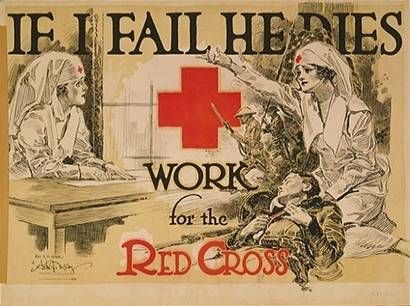This Week's Story
Clara Barton, an extraordinary woman and founder of the Red Cross, confronts her shyness, depression, and poor health.

This Week’s Story relives American history and the Bible through brief inspiring stories presented on mp3 audio recordings and text for reading.
Where there is need..., part one
Clara Barton was an extraordinary woman—more than a famous wartime nurse and the founder of the American Red Cross. She also started the first free public school in New Jersey. Thousands of Civil War prisoners of war were located through her leadership. She pioneered in getting medical supplies to battlefields. With her persuasion the United States government signed the Geneva treaty, giving doctors and nurses neutral status in battle zones.
Clara’s experiences with challenge began when she was a child. Her sister had a mental breakdown and was confined to an upstairs bedroom. Clara was painfully shy and often in poor health. As an adult she had periods of depression. She developed two “rules of action”: Don’t be concerned for what cannot be helped. Stay controlled under pressure.
Clara’s nursing experience began early. When she was almost eleven, her older brother David had a terrible fall sending him to bed with blurry vision, headaches, and inability to walk. Clara became her brother’s personal nurse. His doctor believed that David’s sickness was due to having too much blood. For two years Clara fed, bathed, and daily applied leeches, blood-sucking worms, to her brother. Two years
brought no improvement. A new doctor declared, “A person cannot have too much blood! Stop using the leeches. Place David in a sanatorium, where he will receive steam baths.” The advice was followed. Within three weeks David was able to stand and take a few steps.
As a teenager Clara began to realize that she loved helping people. She asked her father, “Is there anything I can do in town to help people?” Soon she was tutoring poor children. When a smallpox epidemic struck her town, she nursed many people until she got smallpox.
Clara found it difficult to ask for anything that was for herself. A perceptive gentleman advised her family that Clara would not defend herself, but she would be as fearless as a lion in helping people who needed her. He suggested that she become a teacher. Soon she passed her teacher’s examination.
Her first teaching day was May 14, 1839. She was seventeen years old with forty students facing her, many bigger than she. Recess brought a wonderful opportunity. Her students were playing baseball. She observed that none of them knew how to put a spin on the ball for a fast pitch. She knew the technique from her brother David. Soon she was showing it to the players, playing baseball with them, and earning their admiration.
Often Clara was complimented for the excellent discipline her classes had. She was placed in schools known for their rough students. Her quick mind changed lessons from boring repetition to exploration. She became a legend as a teacher.
When Clara moved to New Jersey, she saw poor children not going to school. Free public school education was not available. Clara asked for permission to teach with no salary for three months. Under her leadership the first free school in New Jersey was established and grew from six boys to 600 students. A new bigger school was built. The school board thought a man should be principal of this impressive school and Clara his assistant. The result was disastrous. Clara resigned. At age thirty-two she moved to Washington D.C. and began a new career.
This is Barbara Steiner. Soon we will hear of Clara’s heroic service during the American Civil War. Please check out: thisweeksstory.com.
<< previous story] [next story >>
We invite your comments! [click here to comment]
This Week's Story is a non-profit supported by listeners. [click here to make a donation]
 click here to play audio
click here to play audio